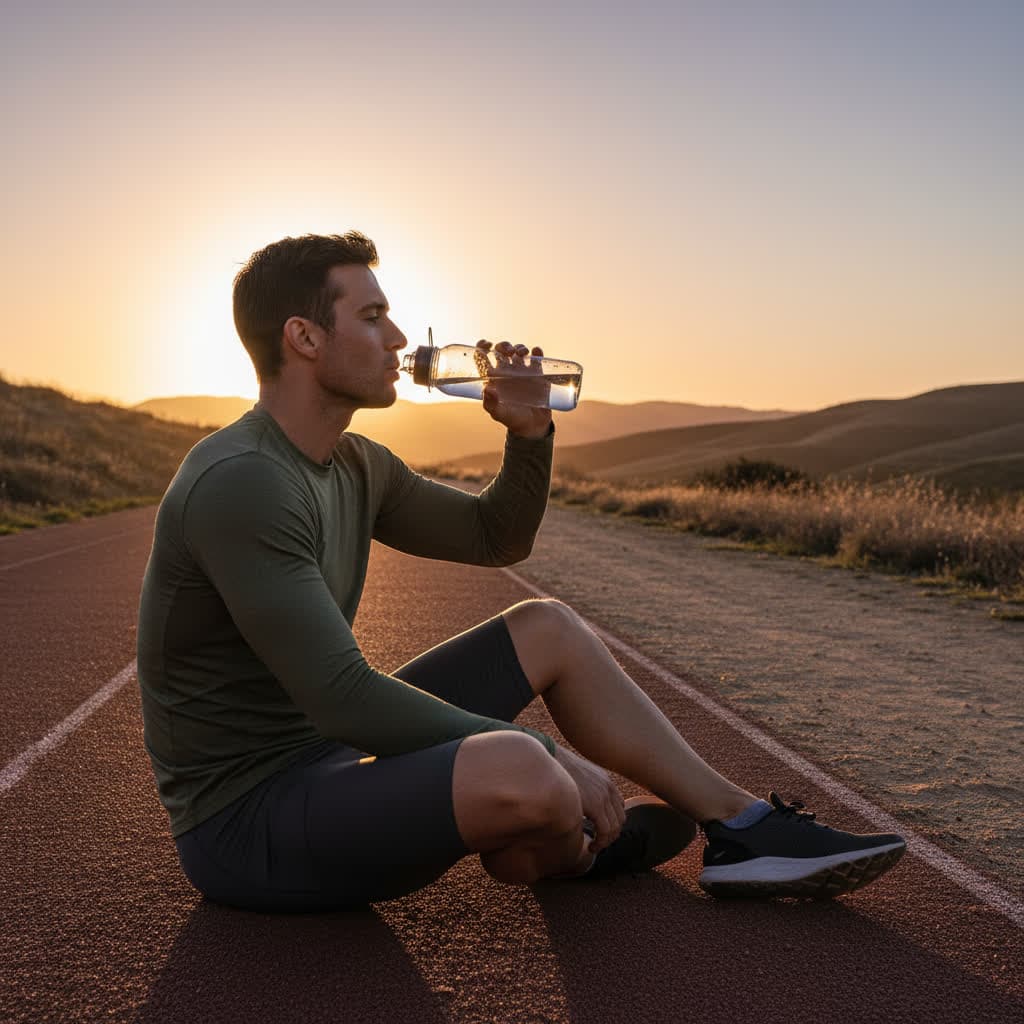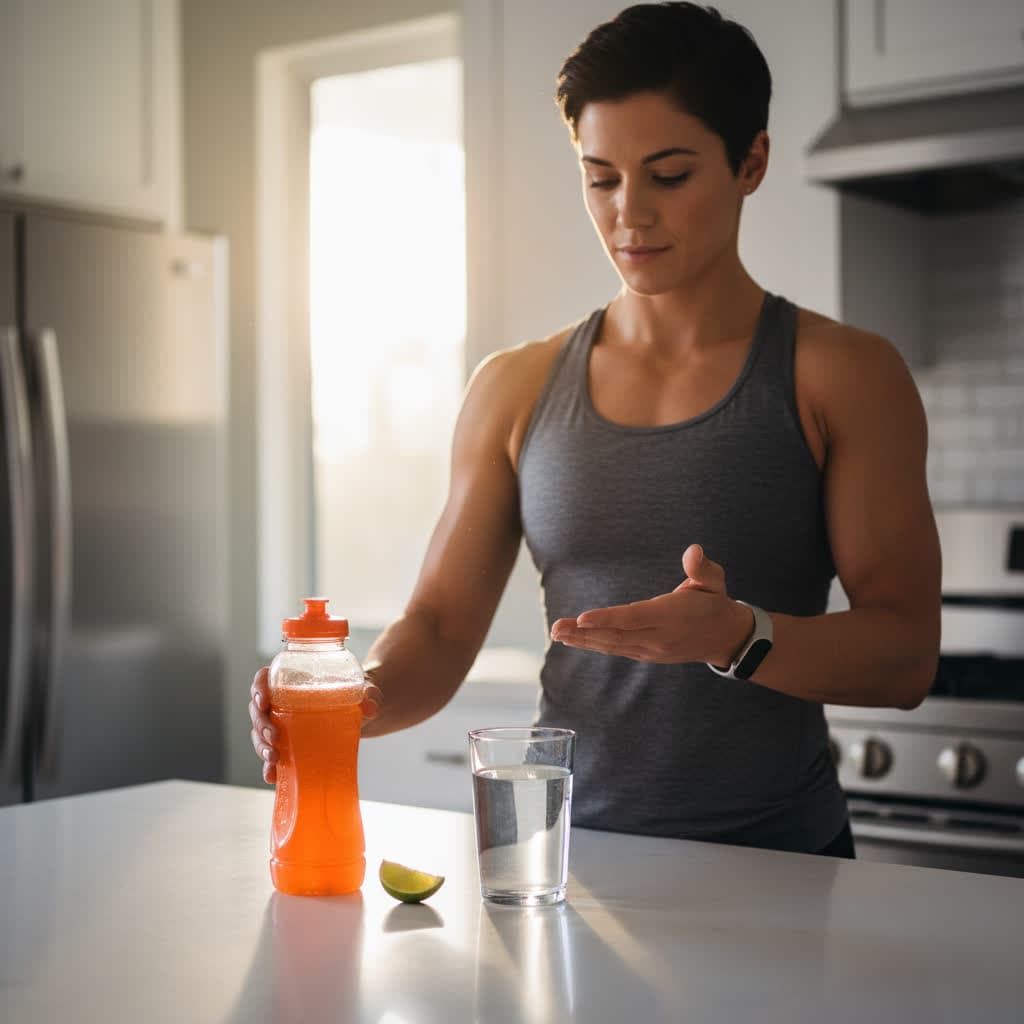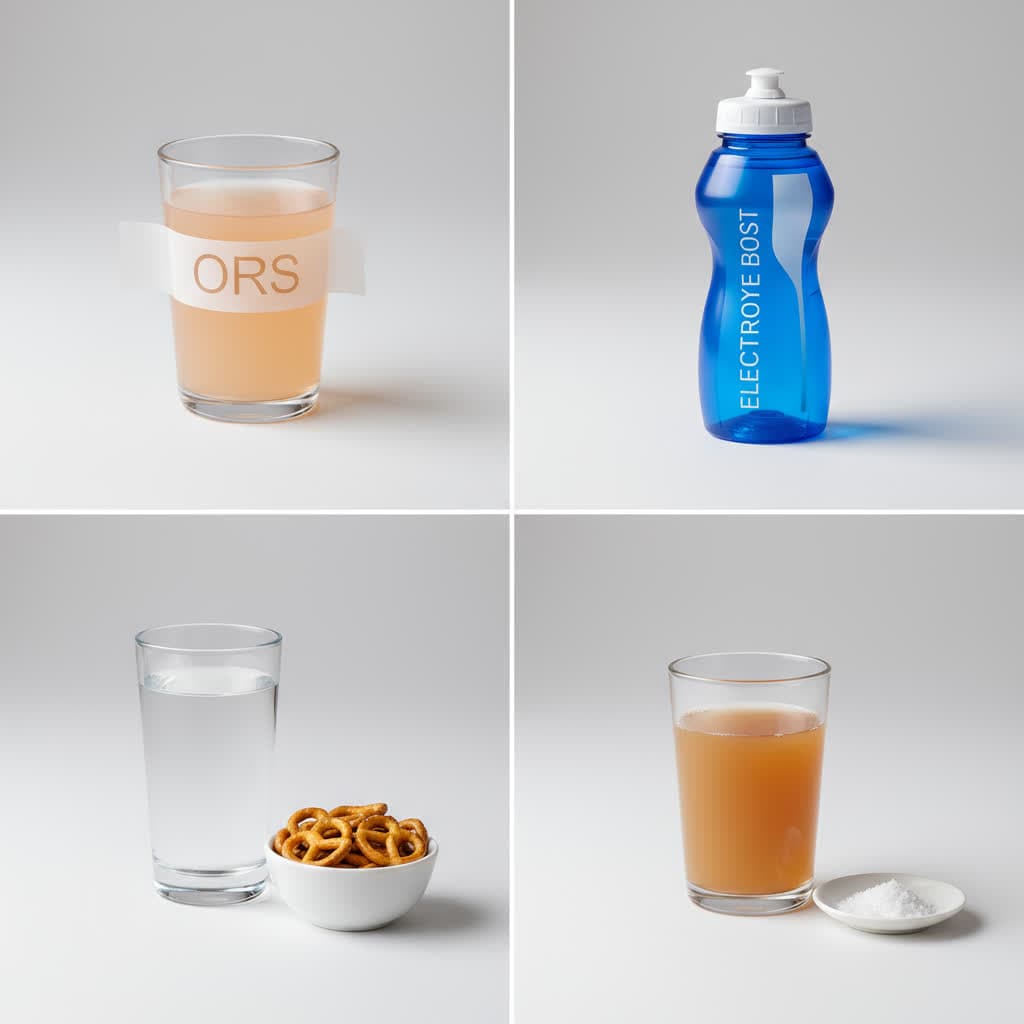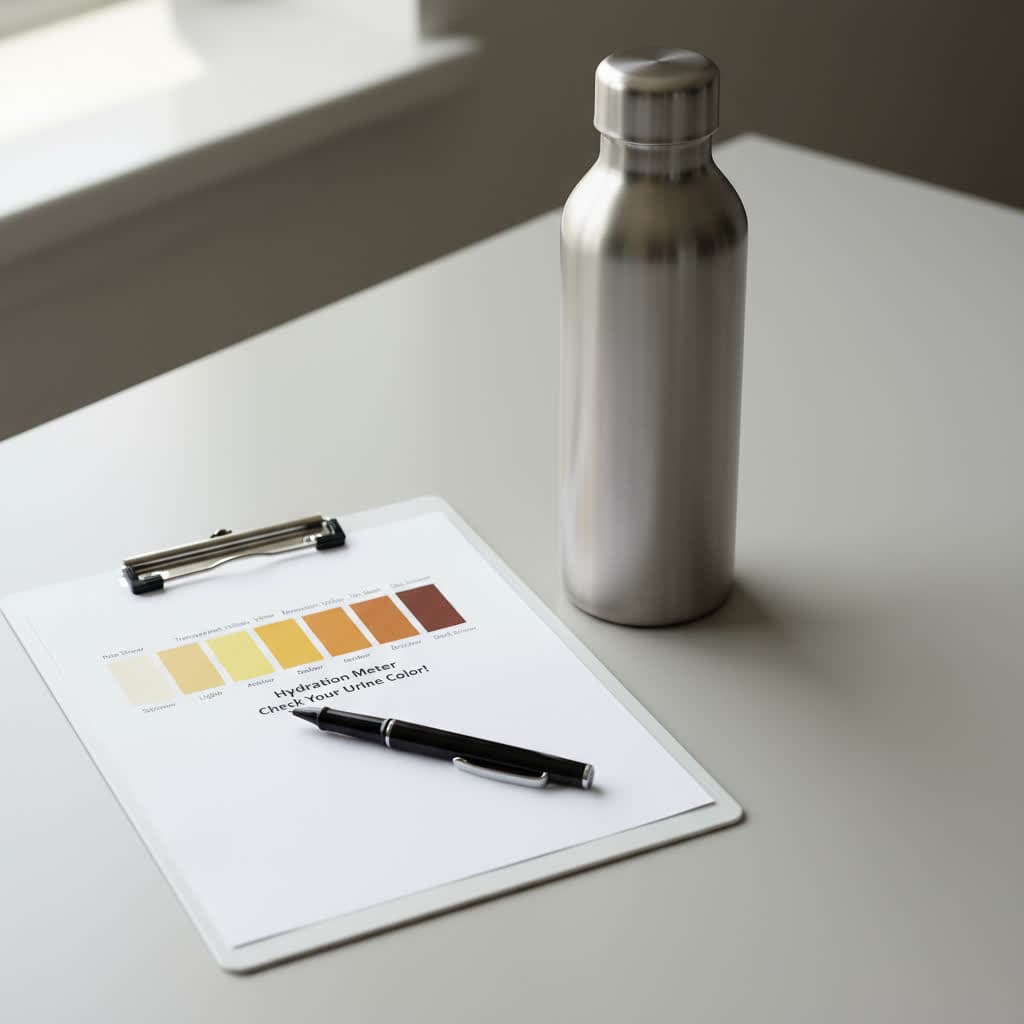How to Rehydrate Fast After Dehydration
Dehydration can leave you feeling weak, dizzy, and downright awful. Whether you’ve been sweating through a tough workout or recovering from an illness, rehydration after dehydration is about absorbing and retaining fluid quickly—without upsetting your stomach or risking electrolyte imbalances. This guide explains how to rehydrate fast, compares fast vs slow strategies, shares effective rehydration home remedies (including a WHO-style ORS recipe), and lists medical safety limits you shouldn’t cross. It’s designed for both everyday folks and athletes.

Why Quick Rehydration Matters
When your body is low on fluids, blood volume drops and thermoregulation struggles. You might notice extreme thirst, fatigue, dry mouth, darker urine, dizziness, or—if more severe—confusion. Quick, effective rehydration restores circulating volume and supports heart, brain, and muscle function. (See our [Insert link to dehydration symptoms article] for early vs. late signs.)
Key idea: “Fast” rehydration isn’t chugging—it’s smart replenishment so more fluid stays in you, not in the toilet.
Fast vs. Slow Rehydration: Sip, Don’t Gulp
Chugging a giant bottle can trigger gastric distress and rapid urination. Instead, take frequent, steady sips over 30–90 minutes. Fluids with sodium + a little glucose are typically absorbed and retained better than plain water when you’re notably dehydrated. This is the same principle behind medical oral rehydration solutions (ORS).
Best Drinks for Dehydration (Ranked by Situation)
- Water – Perfect for mild dehydration or day-to-day needs. If you’ve been sweating, pair water with a salty snack to aid retention.
- Oral Rehydration Solution (ORS) – Gold standard for moderate dehydration or GI losses. Balanced glucose + electrolytes maximize absorption.
- Sports drinks / electrolyte mixes – Solid choice during or after workouts >60–90 minutes, in heat/humidity, or for heavy sweaters. Moderation on sugars.
- Coconut water – Potassium-rich, gentle on the stomach; lower sodium than sports drinks (consider adding salt if you’re very “salty” sweater).
- Broths and soups – Warm, salty, easy to sip; great for illness recovery.
- Diluted juice + a pinch of salt – A pragmatic fallback if no ORS is available (aim for ~1:3 or 1:4 juice-to-water).
Avoid for rehydration: alcohol; very high-sugar drinks; excessive caffeine; and gallon-chugging (hyponatremia risk).

Rehydration Home Remedies (DIY That Works)
The WHO-Style ORS Recipe (At Home)
1 liter clean water + 6 level tsp sugar + 1/2 level tsp table salt.
Stir until fully dissolved. Chill for taste if desired.
Sip slowly and continuously. This solution exploits glucose-sodium co-transport in the small intestine to pull water into the body efficiently. Keep in the fridge up to 24 hours; then make a fresh batch.
Tips
- If taste is challenging, add a squeeze of lemon or chill it.
- For kids, offer tiny sips or ice chips frequently; popsicles made from diluted ORS can help.
- Switch back to water and normal meals once energy/urine normalize.

Other Helpful Home Approaches
- Water + salty snack (pretzels, broth) to aid fluid retention.
- Coconut water for gentle rehydration (top up sodium if needed).
- Hydrating fruits (watermelon, citrus) when appetite is low.
How Much to Drink—and How Fast
Use these practical starting points (adjust to body size, symptoms, and conditions):
-
Mild dehydration (thirst, dry mouth, slightly darker urine):
Sip 8–16 oz / 250–500 mL over 30–60 min; repeat as needed until urine lightens and you feel better. -
After strenuous exercise or heat:
Replace ~20–24 oz / 600–700 mL per pound (0.45 kg) lost over the next few hours; include sodium (sports drink, ORS, broth). Weighing before/after long sessions is most accurate. -
GI losses (vomiting/diarrhea):
Take small, frequent sips of ORS (e.g., 1–2 oz every 5–10 min); increase as tolerated. For infants/children, use pediatric ORS and seek care early if symptoms persist.
Safety ceilings
- Do not exceed ~48 oz (~1.4 L) per hour from any fluids to avoid hyponatremia (dangerously low blood sodium).
- In long events, drink to thirst and include sodium if you’re a heavy sweater.

Athlete vs. Everyday Tips
For Athletes and Heavy Sweaters
- Weigh change: For each 1 lb lost, drink 20–24 oz over 2–4 hours.
- Electrolytes matter: Add sodium for sessions >60–90 min, heat/humidity, or “salty sweater” signs (white crust).
- Phase it: Begin with ~16 oz soon after finishing; keep sipping. Don’t “gallon-chug.”
- Check tomorrow a.m.: Back at baseline weight? You likely rehydrated well.
For Everyday Dehydration (Illness, Heat, Busy Days)
- Start with water, then add electrolytes early if sweating heavily or with GI losses.
- Nausea = micro-sips (or ice chips/pops).
- Cool down first if overheated; then sip cool fluids.
- Make it accessible: keep a bottle nearby; use reminders.
When to Seek Medical Care
Get help urgently if there’s confusion, fainting, chest pain, persistent vomiting, high fever + dehydration, no urination for 8+ hours (adult), or signs of heat stroke. Infants/young children: no tears, sunken eyes/soft spot, dry diapers ≥6 hours, listlessness—use pediatric ORS and call a clinician promptly.
The Bottom Line
To rehydrate fast, think smart absorption and retention, not speed-chugging. Use ORS/electrolytes when losses are substantial; stick to water + food for mild cases; respect hourly safety ceilings to avoid overhydration. With a steady-sip plan and the right drink for the situation, you’ll recover quickly—and safely.
Find Your Local Hydration Needs
Get personalized hydration recommendations based on your local climate and weather conditions: